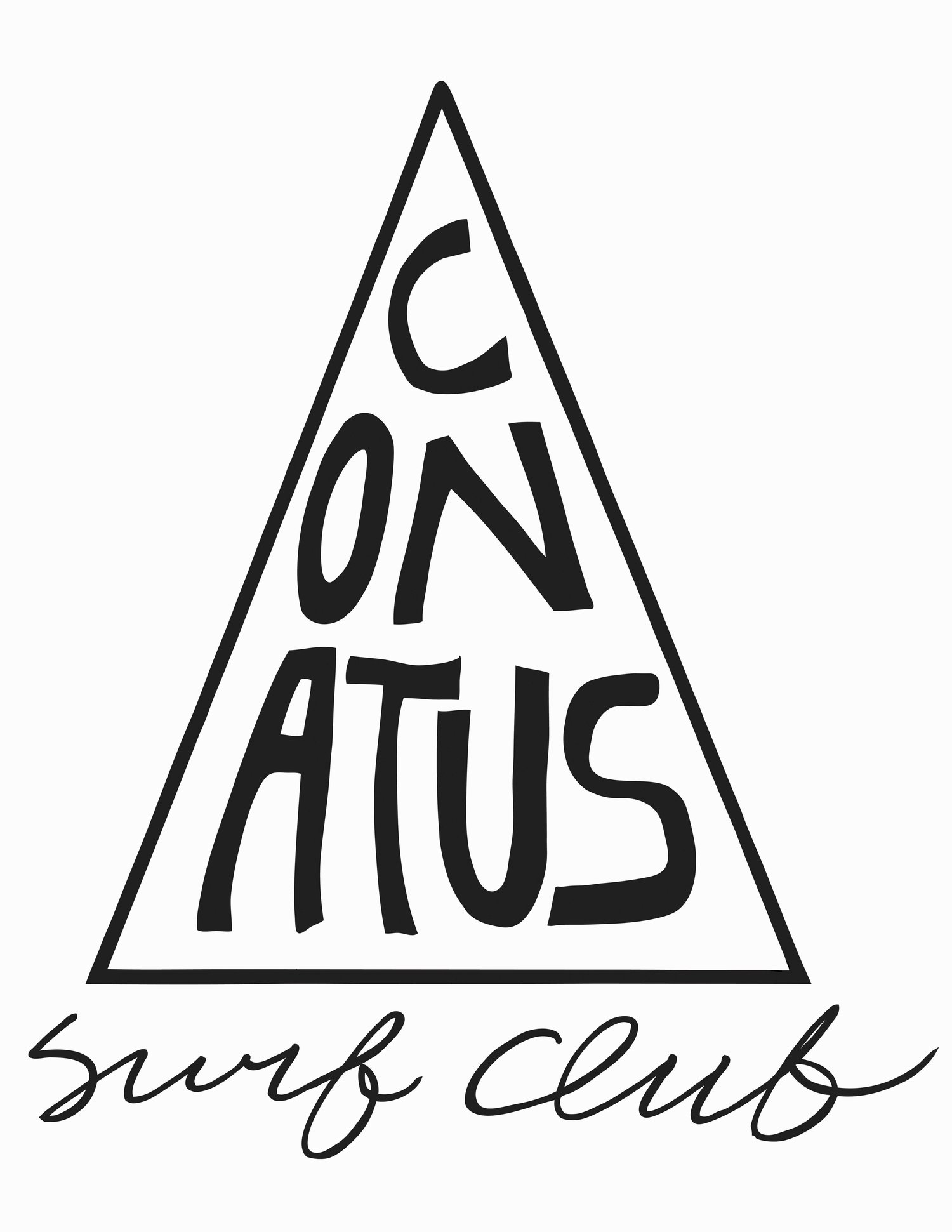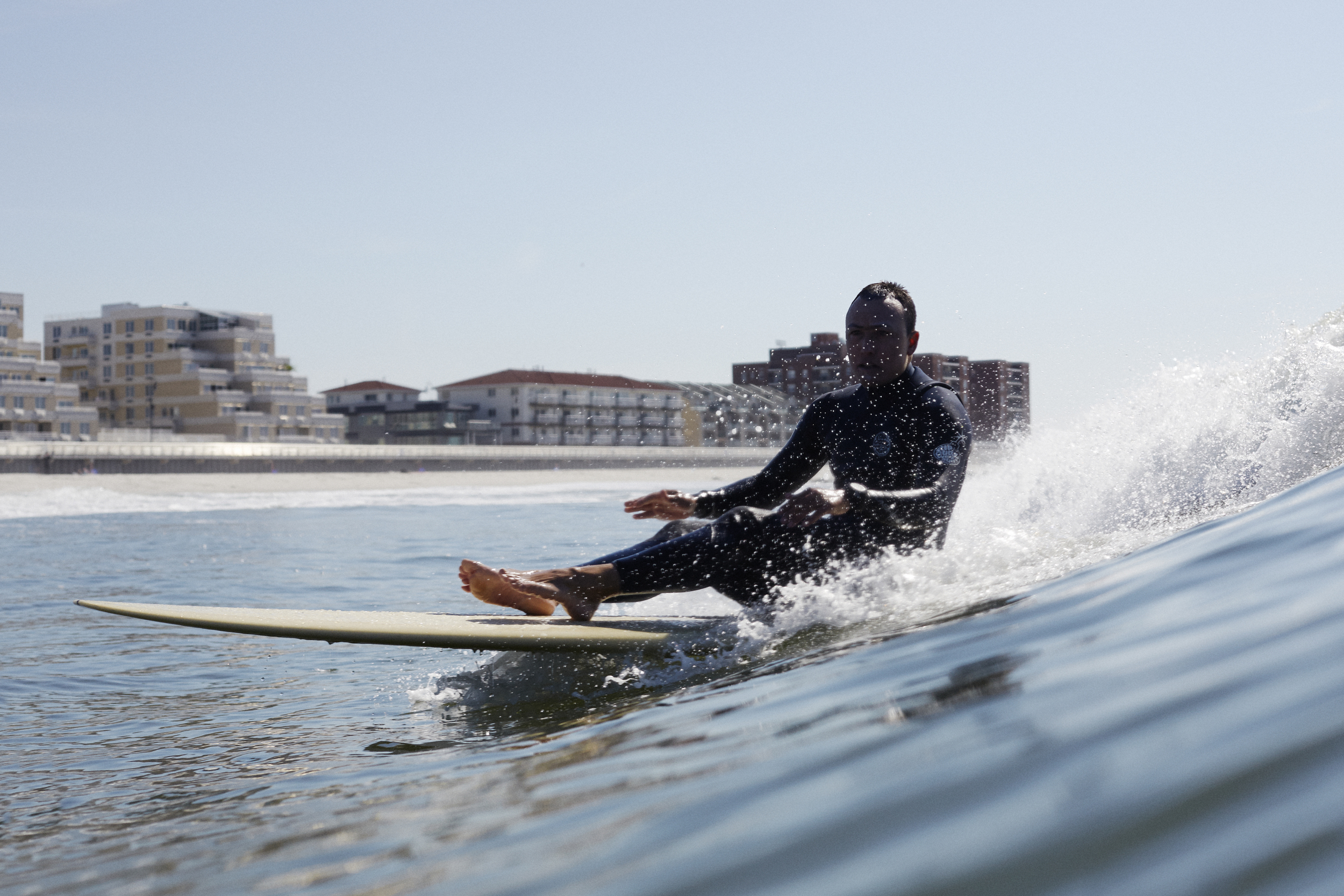Salutations fellow seekers of aquatic joy! This week's post is about the word 'conatus'. I know that I have a blurb about this in the 'about' page, but I think it is worthwhile to give some more concrete historical and philosophical background. I will not be able to cover the entire history of the word or its philosophical use in this one post. I will just start with a few basics.
First of all, as mentioned, I take the term from the philosophy of Baruch (or Benedict) Spinoza. Spinoza was born in Amsterdam in 1632. His family was of Portuguese Jewish decent. They were, however, "maranos", that is "crypto Jews" who professed to be Catholic during the Inquisition. Because of his radical ideas about the nature of God Spinoza himself was excommunicated from his Orthodox Jewish community and the Catholic Church (strangely enough the most extant version of the Ethics have recently been found in a Vatican vault). Knowing his ideas were potentially life threatening, Spinoza never accepted a job in an academic institution. Instead he preferred to work as a lens grinder in a optics shop. Thus he was deeply concerned with convex and concave surfaces, reflections, and helping people to see more clearly.
Spinoza wrote exclusively in Latin, the academic lingua franca of the Middle Ages and early modernity (Enlightenment). His three major works are the Ethica Ordine Geometrico Demonstrata (Ethics), Tractatus de Intellectus Emendatione (Treatise of the Emendation of the Intellect), and the Tractatus Politicus (Political Treatise). The word 'conatus' features in all of these texts, but most prominently in the Ethics, which is a metaphysical treatise that is written in geometric order, using definitions, axioms, postulates, demonstrations, correlatives, and scholia. The Ethics is divided into five parts: I. De Deo (Of God); II. De Natura et Origine Mentis (Of the Nature and Origin of the Mind); III. De Origine et Natura Affectuum (Of the Origin and the Nature of the Affects); IV. De Servitute Humana Seu De Affectuum Viribus (Of Human Bondage, or The Powers of the Affects); V. De Potentia Intellectus Seu De Libertate Humana (Of the Power of the Intellect, or On Human Freedom).
The verb 'conatur' and its corresponding noun 'conatus' is used heavily in the third section (Of the Origin and the Nature of the Affects). I will list some of the passages in Latin below and will provide their corresponding translations. I will not be able to fully explain how these postulates fold upon previous axioms and definitions and I will in most cases also leave out some of the very wordy demonstrations and correlatives. Again, this is just a brief journey to the tip of the iceberg.
III.P7: Conatus, quo unaquaeque res in suo esse perserverare conatur, nihil est praeter ipsius rei actualem essentiam.
The striving by which each thing strives to persevere in its being is nothing but the actual essence of the thing.
Here 'conatus' is translated as 'striving' and 'conatur' as 'strives' or 'to strive'. This postulates that whatever it is within (and possibly without) us constitutes essentially what we are. What we are is something that "strives to persevere in its being". What Spinoza means by 'being' has to do with his definition of God and time, finitude and infinitude. It is important that he believes that being exists sub specie aeternitatis, under a type of eternity (definitely one of my favorite mantras to repeat when surfing). Our essence is both finite and infinite (finite from an infinite source) and we are constantly striving for the infinitude that essentially constitutes what we are.
III.P9.Schol.: Hic conatus cum ad mentem solam refertur, voluntas appellatur; sed cum ad mentem et corpus simul refertur, vocatur appetitus, qui proinde nihil aliud est, quam ipsa hominis essentia, ex cuius natura ea, quae ipsius conservationi inserviunt, necessario sequuntur; atque adeo homo ad eadem agendum determinatus est. Deinde inter appetitum et cupiditatem nulla est differentia, nisi quod cupiditas ad homines plerumque referatur, quatenus sui appetitus sunt conscii; et propterea sic definiri potest, nempe cupiditas est appetitus cum eiusdem conscientia. Constat itaque ex his omnibus, nihil nos conari, velle, appetere neque cupere, quia id bonum esse iudicamus; sed contra nos propterea aliquid bonum esse iudicare, quia id conamur, volumus, appetimus atque cupimus.
When this striving is related only to the mind, it is called will; but when it is related to the mind and body together, it is called appetite. This appetite, therefore, is nothing but the very essence of man, from whose nature there necessarily follow those things that promote his preservation. And so man is determined to do those things. Between appetite and desire there is no difference, except that desire is generally related to men insofar as they are conscious of their appetite. So desire can be defined as appetite together with consciousness of the appetite. From all this, then, it is clear that we neither strive for, nor will, neither want, nor desire anything because we judge it to be good; on the contrary, we judge something to be good because we strive for it, will it, want it, desire it.
All that is good in life, is good because we strive for it, not because it is worth striving for. The striving alone, the 'conatus', is what constitutes its goodness. That status of goodness is still under question. It turns out to be defined as an 'increase in joy', but you will have to wait until the next post for that to be explained. For now, I think I have at least given you some context as to the word 'conatus' and how it is roughly used in Spinoza's philosophy.
You will notice that I have bolded where it is used in the Latin passages. It is written differently in different places depending on whether it is used as a verb or a noun, and in Latin nouns and verbs take different endings depending on their status in the sentence. I want to point out here that learning surfing is very similar, and in fact quite related to, learning any other kind of grammar. I have written a paper about that that I will certainly share down the road. And I hope that from this (not so) little blog post you can start to see why I would want to associate my method of teaching surfing with the word 'conatus'.
To sum up, I like the concept of striving as constitutive both of what it is that we are and of our search for the good. I believe that this striving takes an almost infinite amount of forms (or modes in Spinoza's language), and the mode that I most relate to is that one that takes place in the ocean, somewhere between finitude and infinitude.



